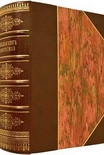Myths and Legends of China by E. Werner (free ebook reader for iphone TXT) 📗

- Author: E. Werner
Book online «Myths and Legends of China by E. Werner (free ebook reader for iphone TXT) 📗». Author E. Werner
Agriculture and Rearing of Livestock
From the earliest times the greater portion of the available land was under cultivation. Except when the country has been devastated by war, the Chinese have devoted Page 50close attention to the cultivation of the soil continuously for forty centuries. Even the hills are terraced for extra growing-room. But poverty and governmental inaction caused much to lie idle. There were two annual crops in the north, and five in two years in the south. Perhaps two-thirds of the population cultivated the soil. The methods, however, remained primitive; but the great fertility of the soil and the great industry of the farmer, with generous but careful use of fertilizers, enabled the vast territory to support an enormous population. Rice, wheat, barley, buckwheat, maize, kaoliang, several millets, and oats were the chief grains cultivated. Beans, peas, oil-bearing seeds (sesame, rape, etc.), fibre-plants (hemp, ramie, jute, cotton, etc.), starch-roots (taros, yams, sweet potatoes, etc.), tobacco, indigo, tea, sugar, fruits, were among the more important crops produced. Fruit-growing, however, lacked scientific method. The rotation of crops was not a usual practice, but grafting, pruning, dwarfing, enlarging, selecting, and varying species were well understood. Vegetable-culture had reached a high state of perfection, the smallest patches of land being made to bring forth abundantly. This is the more creditable inasmuch as most small farmers could not afford to purchase expensive foreign machinery, which, in many cases, would be too large or complicated for their purposes.
The principal animals, birds, etc., reared were the pig, ass, horse, mule, cow, sheep, goat, buffalo, yak, fowl, duck, goose, pigeon, silkworm, and bee.
The Ministry of Agriculture and Commerce, the successor to the Board of Agriculture, Manufactures, and Commerce, instituted during recent years, is now adapting Western methods to the cultivation of the fertile soil of Page 51China, and even greater results than in the past may be expected in the future.
Sentiments and Moral Ideas
The Chinese have always shown a keen delight in the beautiful—in flowers, music, poetry, literature, embroidery, paintings, porcelain. They cultivated ornamental plants, almost every house, as we saw, having its garden, large or small, and tables were often decorated with flowers in vases or ornamental wire baskets or fruits or sweetmeats. Confucius made music an instrument of government. Paper bearing the written character was so respected that it might not be thrown on the ground or trodden on. Delight was always shown in beautiful scenery or tales of the marvellous. Commanding or agreeable situations were chosen for temples. But until within the last few years streets and houses were generally unclean, and decency in public frequently absent.
Morality was favoured by public opinion, but in spite of early marriages and concubinage there was much laxity. Cruelty both to human beings and animals has always been a marked trait in the Chinese character. Savagery in warfare, cannibalism, luxury, drunkenness, and corruption prevailed in the earliest times. The attitude toward women was despotic. But moral principles pervaded the classical writings, and formed the basis of law. In spite of these, the inferior sentiment of revenge was, as we have seen, approved and preached as a sacred duty. As a result of the universal yin-yang dualistic doctrines, immorality was leniently regarded. In modern times, at least, mercantile honour was high, “a merchant’s word is as good as his bond” being truer in China than in many Page 52other countries. Intemperance was rare. Opium-smoking was much indulged in until the use of the drug was forcibly suppressed (1906–16). Even now much is smuggled into the country, or its growth overlooked by bribed officials. Clan quarrels and fights were common, vendettas sometimes continuing for generations. Suicide under depressing circumstances was approved and honoured; it was frequently resorted to under the sting of great injustice. There was a deep reverence for parents and superiors. Disregard of the truth, when useful, was universal, and unattended by a sense of shame, even on detection. Thieving was common. The illegal exactions of rulers were burdensome. In times of prosperity pride and satisfaction in material matters was not concealed, and was often short-sighted. Politeness was practically universal, though said to be often superficial; but gratitude was a marked characteristic, and was heartfelt. Mutual conjugal affection was strong. The love of gambling was universal.
But little has occurred in recent years to modify the above characters. Nevertheless the inferior traits are certainly being changed by education and by the formation of societies whose members bind themselves against immorality, concubinage, gambling, drinking, smoking, etc.
Religious Ideas
Chinese religion is inherently an attitude toward the spirits or gods with the object of obtaining a benefit or averting a calamity. We shall deal with it more fully in another chapter. Suffice it to say here that it originated in ancestor-worship, and that the greater part of it remains ancestor-worship to the present day. The State religion, which was Confucianism, was ancestor-worship. Taoism, Page 53originally a philosophy, became a worship of spirits—of the souls of dead men supposed to have taken up their abode in animals, reptiles, insects, trees, stones, etc.—borrowed the cloak of religion from Buddhism, which eventually outshone it, and degenerated into a system of exorcism and magic. Buddhism, a religion originating in India, in which Buddha, once a man, is worshipped, in which no beings are known with greater power than can be attained to by man, and according to which at death the soul migrates into anything from a deified human being to an elephant, a bird, a plant, a wall, a broom, or any piece of inorganic matter, was imported ready made into China and took the side of popular superstition and Taoism against the orthodox belief, finding that its power lay in the influence on





Comments (0)